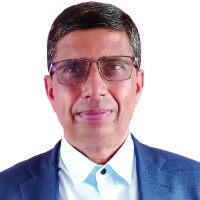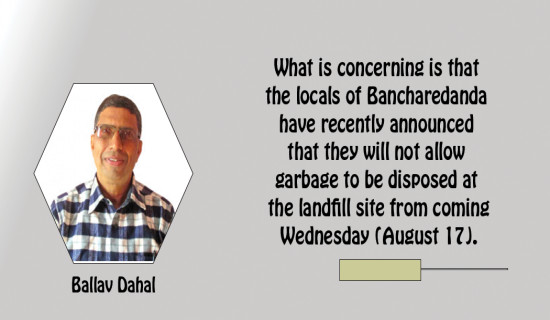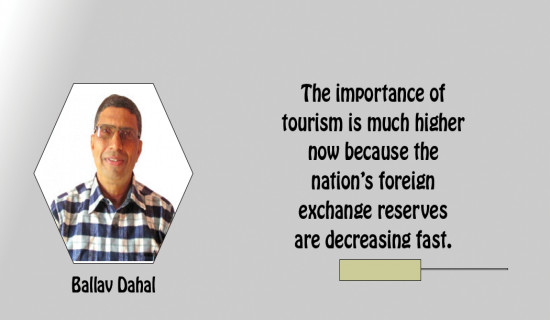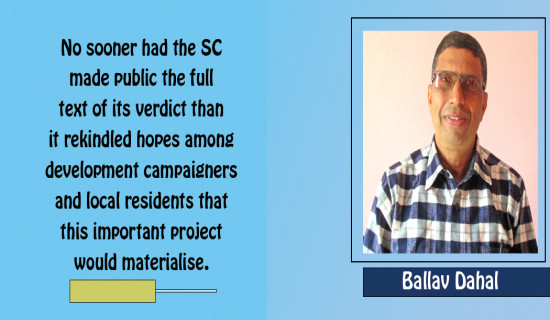- Saturday, 21 February 2026
Grassroots Democracy Becomes More Vibrant
There is no denying the fact that local governments are the fundamentals of democratic governance. As the lowest tier of administration, local governments work more closely with people than the federal and provincial ones. Because people’s elected representatives are directly involved in day-to-day administration and service delivery at the local level, they are supposed to work in a responsible, accountable and transparent manner.
The Constitution of Nepal, 2015 has entrusted local government institutions with the key responsibility of addressing local problems and concerns. They are accountable to people for their decisions and activities. So, they are supposed to work as per the needs and aspirations of citizens.
Powers
Local governments are powerful, functional and autonomous units under Nepal’s federal democratic republican set-up. They enjoy executive, legislative and semi-judicial powers. They also carry out their responsibilities and exercise powers as specified by the Local Government Operation Act, 2018.
Because local polls play a very crucial role in developing local leadership and strengthening and institutionalising democracy at the grassroots, they are considered the cornerstone of democratic governance and political stability at the local level. Democracy cannot become vibrant and functional in a real sense without free and fair periodic elections and adult franchise.
Most of the newly-elected people’s representatives have assumed their office in the local government institutions around the country by now. People have voted them in the power in the May 13 local election. The poll has been held in all the 753 local levels (six metropolises, 11 sub-metropolises, 276 municipalities and 460 rural municipalities). There are altogether 6,743 wards at all the local levels. People have elected a total of 35,221 representatives. It was the second local election in the country after the 2017 poll held as per the new constitution.
After having been elected in the first local election, many people’s representatives tried their best to enhance the efficiency of the service delivery system in their respective constituencies. The performance of a few local levels was very commendable as they were able to bring about some noticeable changes in terms of citizens’ welfare and infrastructural development. They also prepared a roadmap for achieving the goal of economic prosperity and overall development. They seem to have prioritised health, education and other important sectors.
Because people’s elected representatives are directly involved in day-to-day administration and service delivery at the local level, they are supposed to work in a responsible, accountable and transparent manner.
What was another notable initiative was that local governments joined hands with the federal and provincial governments and other organisations to manage COVID-19. They took it as a challenge as well as an opportunity. One way or the other, they could prove their mettle while tackling the pandemic. In some areas, local governments also remained dedicated to cope with different natural disasters like flash floods, landslides and inundations.
However, lots of local governments were blamed for not keeping their promises and failing to embrace democratic principles and values. They could not ensure good governance. Consequently, numerous anomalies came out, disrupting the functioning of local levels.
A survey titled “Study on Corruption and Good Governance in Nepal-2075” that had been unveiled more than two years back portrayed an embarrassing scenario of abuse of powers and authority at local levels.
Conducted by the Commission for Investigation of Abuse of Authority (CIAA), the survey indicated that a lot of local government institutions such as municipalities and rural municipalities were so corrupt that they occupied the second position after land revenue offices in terms of corruption.
According to the report, the highest number of respondents (55 per cent) had termed land revenue offices as the most corrupt and 41.6 per cent had complained that they were forced to pay extra to get services from local government institutions.
The anti-corruption body’s report also hinted that the number of complaints related to corruption and irregularities at the local levels was increasing at an alarming rate over the years. As many as 3,000 people in 15 different districts were surveyed by the CIAA.
Similarly, annual reports from the Office of the Auditor General (OAG) have also pointed out an increasing rate of arrears at the local levels.
With such unwanted activities, numerous local government institutions have lost their image as the ‘people’s governments’. As important state mechanisms aimed at strengthening the grassroots democracy, they should have worked towards promoting rule of law, transparency and answerability.
Most local governments in the hilly and mountainous regions were charged with adopting a ‘dozer development’ approach. Using dozers, tracks were opened even in areas with fragile ecology randomly. Learning from the past, the new local leadership must work by putting people at the centre. They need to go for a planned development process and focus on creating jobs and tackling climate change issues. In addition, they must improve the service delivery system and stop raising tax rates haphazardly.
As there has been an increased degree of political empowerment among Nepali people over the years, they have now been capable of judging political parties and candidates well. This is one of the reasons behind the humiliating defeat faced by many candidates in the fresh local election. At the 341 local levels, outgoing mayors/chairpersons had filed their candidacy again. But only 53 mayors and 89 chairpersons have been reelected.
The local poll was not in favour of several province-level leaders who were affiliated with different political parties. They contested mayoral seats in various metropolises after resigning as members of provincial assemblies. This clearly shows a rising level of voters’ awareness and dissatisfaction over the political parties’ wrong working style.
Youth Participation
Although voters’ turnout was lower during this year’s local election as compared to the one held in 2017, youths’ participation in the electoral process as voters as well as candidates was quite encouraging. More than 40 per cent of the freshly elected representatives are below 40 years. If this is any indication, the country might see more youths contesting in the upcoming federal parliament and provincial assembly elections.
The NC has won elections at 328 local levels while the CPN-UML and the CPN-Maoist Centre have been able to bag 205 and 121 local units, respectively. Five ruling parties—NC, Maoist Centre, CPN-Unified Socialist, Janata Samajwadi Party and Rastriya Janamorcha—had decided to forge an electoral alliance. However, they were successful in materialising the decision only at one-third of the total local levels.
Many independent candidates have stolen the limelight in the local election. Balendra (Balen) Sah has become the Mayor of the Kathmandu Metropolitan City, defeating NC’s Srijana Singh and UML’s Keshav Sthapit. The victory of a rapper and structural engineer in the nation’s biggest metropolis has taken many by surprise.
Independent mayoral contenders have emerged victorious in Dharan Sub-metropolis, Janakpur Sub-metropolis and Dhangadhi Sub-metropolis as well. The candidates who were in the election fray on the ticket of political parties have lost the poll to independent aspirants with a wide margin of votes. The growing nepotism and favouritism-related problem with the selection of candidates have been the main factor behind their crushing defeat.
Anyway, this should be taken in a positive light in the sense that the political parties may start reviewing their approaches and working styles in the days to come.
With more than 80 per cent of mayors/deputy mayors and chairmen/ deputy chairpersons at the local levels being new faces, they are expected to work by raising themselves above their partisan and personal interests.
(Dahal is a deputy executive editor of this daily.)



-original-thumb.jpg)













